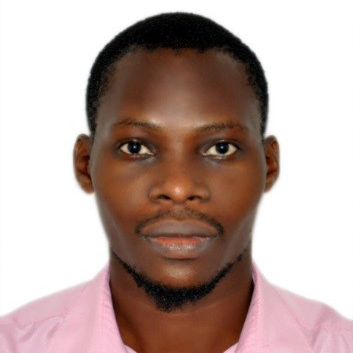Cardiology Training in Nigeria: Opportunities Available For FITs

Postgraduate residency training in Nigeria is provided by the National Postgraduate Medical College of Nigeria and the West African College of Physicians. The program is structured in two phases: the junior residency and senior residency training. The junior residency training is a two-year program with rotations in different units. It is a busy and formative period of the residency training where the residents are taught the art and science of medicine. Residents take long hours of call, teach medical students and struggle to keep up with the curriculum of medical training. The senior residency lasts a minimum period of three years before the individual is eligible for fellowship exams and certification as a specialist.
Cardiology training in Nigeria involves the management of different cardiac diseases. We see many patients with hypertension, heart failure, congenital heart diseases, arrhythmias and fewer cases of coronary heart diseases. Interventional cardiology is still very rudimentary with only few hospitals having the skills and resources, so we are largely limited to non-invasive procedures like holter monitoring, stress ECG, and echocardiography, though we have some experience with thrombolytic therapy and coronary angiography. Occasionally, we have foreign missionaries visit the country to perform procedures like CRT insertion, valvuloplasty, valve replacement, electrophysiology and others, but these are few. The volume of the procedures is not enough due to constraints of cost, logistics and cultural impediments.
In addition, the program involves self-directed learning under the supervision of consultants and journal clubs to review latest medical research. Some hospitals now have embedded resident research days where residents have whole days to engage in independent research towards their fellowship dissertation. Residents are encouraged to engage more with the Nigerian Cardiac Society, which organizes workshops and cardiovascular symposiums for cardiology residents and fellows. They also have the opportunity to present their research work at the society's annual conference. Deserving residents are sponsored for the annual European Society of Congress meetings and encouraged to attend the ACC Annual Scientific Sessions. We also have an African consortium – Pan-African Society of Cardiology – which provides opportunities for Fellows in Training (FITs) by bringing training and fellowship opportunities to them.
It is imperative that residents pursue foreign clinical fellowships and observer-ships abroad so that they can learn the latest advances in cardiac care and develop collaborations with FITs in other countries for research and mentorship. There are opportunities for residents here who are interested in research and academics to enroll in a master's degree in medicine, epidemiology and other interesting fields in affiliated universities. These programs will improve one's analytical skills and enhance the FITs fellowship dissertation defense.
In addition, the Commonwealth and Chevening scholarships, funded by the Foreign and Commonwealth Office, provide opportunities for FITs to travel to the U.K. for clinical fellowships, clinical masters and taught master's degrees. These are invaluable opportunities for lifelong collaborations and mentorships. The U.K. also has the Medical Training Initiative (MTI) which provides FITs with a two-year clinical fellowship in the U.K. However, securing a cardiology fellowship through this route is very competitive as cardiology fellowships are oversubscribed. FITs interested in the MTI may find it easier to have the MRCP diploma to qualify them for a ST3 cardiology position in the U.K. This may become more open with the approaching Brexit. Another option is to reach out to cardiologists and FITs in other countries like South Africa and Egypt, which already have high volume interventional and non-invasive cardiology training programs. Incentivizing this by providing training grants through government funding or rejuvenating the World Heart Federation Clinical Fellowships will go a long way to develop highly-skilled cardiologists in Nigeria and other African countries. There are also observer-ship positions in the U.S. for FITs who can sponsor themselves.
During my junior residency training, I joined some research teams in cardiovascular medicine in our hospital. This research work gave me the impetus to further my training in cardiology. I have had enormous support from my teachers and mentors in dealing with the challenges of combining clinical work with research. I later decided to enroll for a master's degree in clinical epidemiology, which helped me understand and learn how to conduct independent research, write manuscripts and perform statistics. I was selected last year for the ten-day teaching seminar of the International Society for Cardiovascular Disease Epidemiology and Prevention where I met other young FITs, doctoral fellows and leading figures in cardiovascular research. I have benefitted immensely from the network and experience gained from this fellowship. To broaden and deepen my background in cardiovascular medicine, I am starting a master's degree in cardiovascular science at UCL, which is being funded by the Chevening scholarship. This opportunity will further prepare me for a career in cardiovascular research upon my return.
This article was authored by Ayodipupo Oguntade, MBChB, MWACP, Fellow in Training (FIT) at the University College Hospital in Ibadan, Nigeria.

